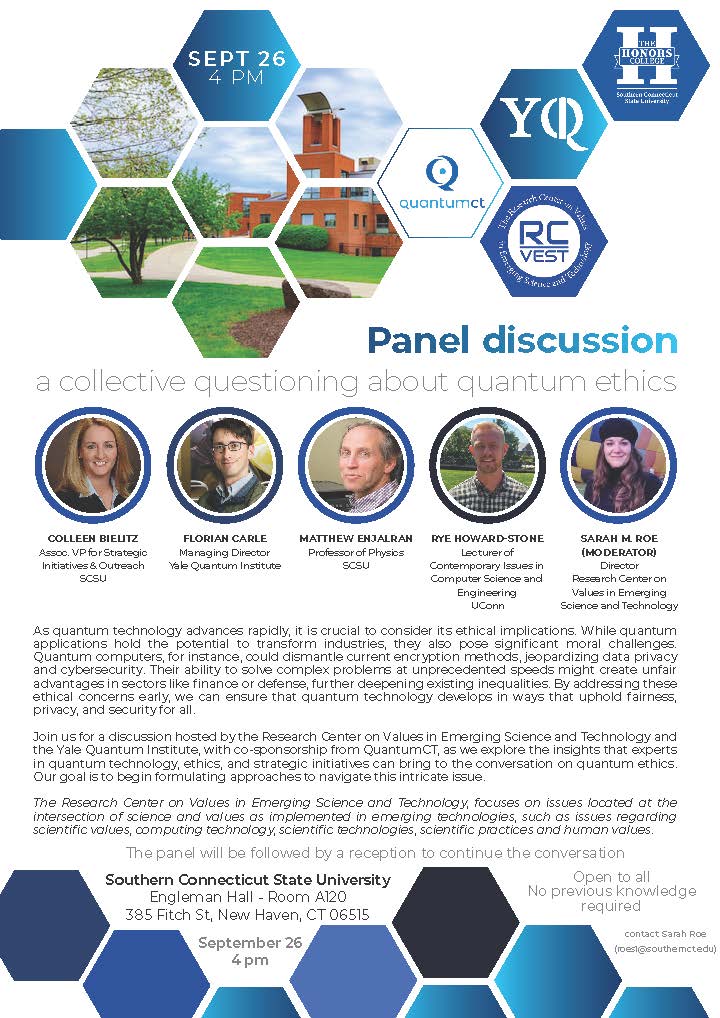Click here to hear a recording (podcast) of the event!
Event time: Thursday, September 26, 2024 – 4:00pm to 5:00pm
Audience: Faculty, students, staff, researchers, community members, general public.
Location: Southern Connecticut State University – Engleman Hall – Room A120 See map
Panelists
Colleen Bielitz Assoc. VP for Strategic Initiatives & Outreach, SCSU
Florian Carle Managing Director, Yale Quantum Institute
Matthew Enjalran Professor of Physics, SCSU
Rye Howard-Stone Lecturer of Contemporary Issues in Computer Science and Engineering, UConn
Sarah M. Roe (moderator) Director, Research Center on Values in Emerging Science and Technology, SCSU
The panel will be followed by a reception to continue the conversation.
As quantum technology advances rapidly, it is crucial to consider its ethical implications. While quantum applications hold the potential to transform industries, they also pose significant moral challenges. Quantum computers, for instance, could dismantle current encryption methods, jeopardizing data privacy and cybersecurity. Their ability to solve complex problems at unprecedented speeds might create unfair advantages in sectors like finance or defense, further deepening existing inequalities. By addressing these ethical concerns early, we can ensure that quantum technology develops in ways that uphold fairness, privacy, and security for all.
Join us for a discussion hosted by the Research Center on Values in Emerging Science and Technology and the Yale Quantum Institute, with co-sponsorship from QuantumCT, as we explore the insights that experts in quantum technology, ethics, and strategic initiatives can bring to the conversation on quantum ethics. Our goal is to begin formulating approaches to navigate this intricate issue.
The Research Center on Values in Emerging Science and Technology, focuses on issues located at the intersection of science and values as implemented in emerging technologies, such as issues regarding scientific values, computing technology, scientific technologies, scientific practices and human values. https://rcvest.southernct.edu/




